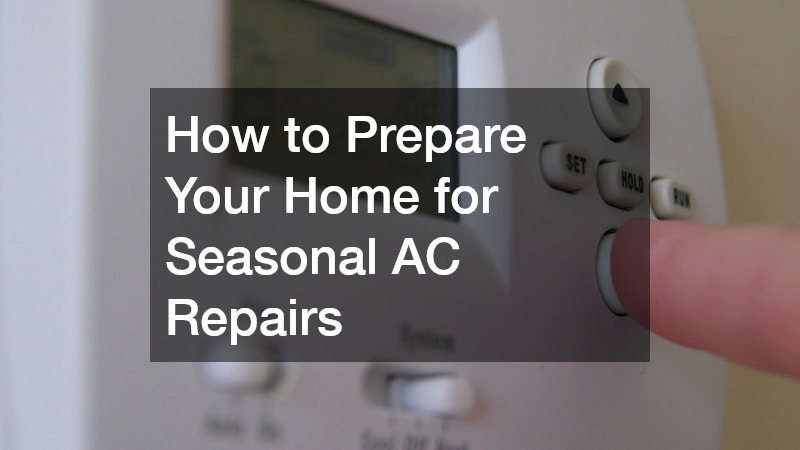In this article, we will explore essential AC repair company tips that can help you enhance energy efficiency and maintain comfort in your home. Whether you’re dealing with an older system or a new installation, understanding how your air conditioner operates is key to reducing energy costs and preventing costly repairs. We will address common questions and concerns regarding air conditioning systems, including proper maintenance routines, signs of potential issues, and ways to optimize performance.
By following expert guidance, you can ensure your home remains cool, comfortable, and energy-efficient year-round while extending the life of your AC system.
Frequently Asked Questions
How Can I Improve My AC System’s Energy Efficiency?
A crucial step in improving your air conditioner’s energy efficiency is regularly maintaining its components. Dirty filters can hinder airflow, making your system work harder and use more energy. Changing or cleaning your air filters monthly can significantly reduce energy consumption and improve your system’s performance.
Another way to boost energy efficiency is to upgrade to a programmable or smart thermostat. These devices can adjust your home’s temperature based on your daily schedule, ensuring that your AC is not running unnecessarily when you’re not home. This technology not only enhances efficiency but can also lead to substantial savings on your energy bills.
Additionally, consider sealing any leaks in your ductwork. Leaky ducts can significantly reduce the effectiveness of your cooling system, causing it to work overtime while failing to maintain the desired temperature in your home. By ensuring your ducts are well-sealed and insulated, you can enhance efficiency and save on energy costs over time.
What Are the Signs That My AC Needs Repair?
Common indicators that suggest your air conditioning system requires professional attention include unusual noises coming from the unit. Banging, hissing, or clicking sounds can all be signs of mechanical issues that need a technician’s expertise. Ignoring these sounds can lead to more severe problems and costly repairs down the line.
Another clear signal that your AC may need repair is inconsistent cooling throughout your home. If some rooms feel warm while others are freezing, it may indicate a problem with the system’s airflow, refrigerant levels, or even ductwork. Addressing this imbalance promptly is essential to restoring comfort and efficiency.
Finally, if you notice a rise in your energy bills without a corresponding increase in usage, this can also indicate a failing AC system. An AC working harder than it should typically consumes more energy, leading to higher bills. It’s important to have the system checked to diagnose the issue before it escalates.
How Often Should I Schedule Maintenance for My AC?
It’s recommended that you schedule maintenance for your air conditioning system at least once a year. Having a professional inspection in the spring, before the peak summer heat, can identify any potential problems and ensure the system operates at peak efficiency during the hottest months. Regular check-ups help extend the life of your unit and maintain optimal performance.
Maintenance visits generally include a comprehensive inspection of the unit, including cleaning the coils, checking refrigerant levels, and ensuring components are functioning properly. Some companies may even offer multi-year plans that reduce the overall cost and ensure your system receives the attention it needs consistently.
Lastly, if you have an older system or live in a particularly hot climate, you may benefit from bi-annual maintenance. This not only allows for more frequent inspections and necessary adjustments but can also help ensure peace of mind, knowing that your system is ready to handle the heat during the busiest months of the year.
What Factors Affect the Comfort Level of My Home During Summer?
Understanding the various elements that impact indoor comfort during summer involves recognizing the effects of humidity and air quality. High humidity levels can cause discomfort, making the air feel warmer than it is. Installing a dehumidifier or using your AC system effectively can alleviate this issue, ensuring a more comfortable environment.
Another factor influencing comfort is the insulation of your home. Insufficient insulation can allow conditioned air to escape, making your AC work harder to maintain a cool temperature. Ensure that your home is properly insulated, particularly in areas like attics and around windows and doors, to enhance efficiency and comfort.
Lastly, the positioning of your AC unit plays a crucial role in its efficiency. If it’s in direct sunlight, it will struggle to cool your home effectively. Consider relocating the unit or adding shading precautions to lower the temperature around the unit and improve its operational efficiency. By addressing these factors, you can significantly enhance your home comfort during the summer months.
By following these tips and addressing common concerns, homeowners can ensure their AC systems operate efficiently while providing optimal comfort throughout the warmer months. Regular maintenance and timely repairs are crucial in achieving the best results. Maximizing energy efficiency not only saves on utility bills but also contributes to a healthier living environment.



